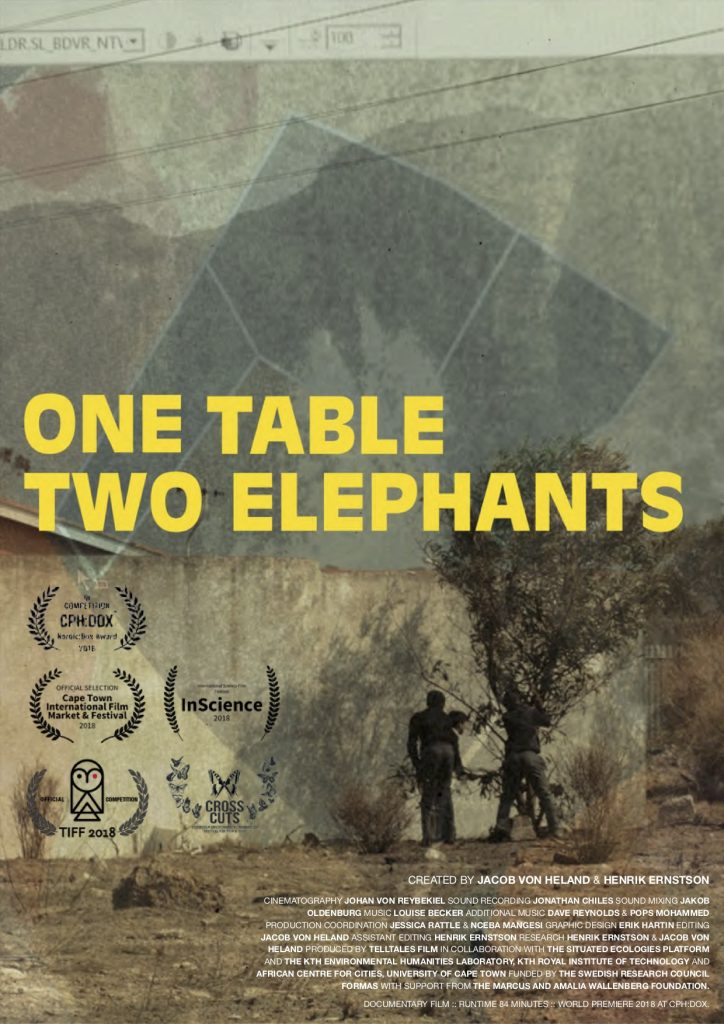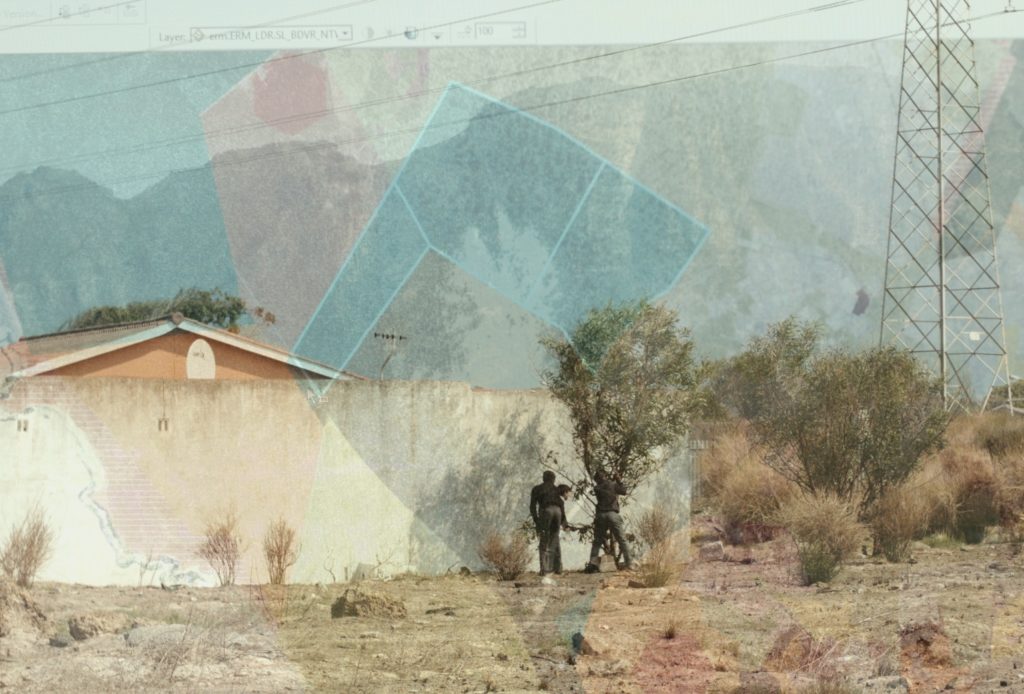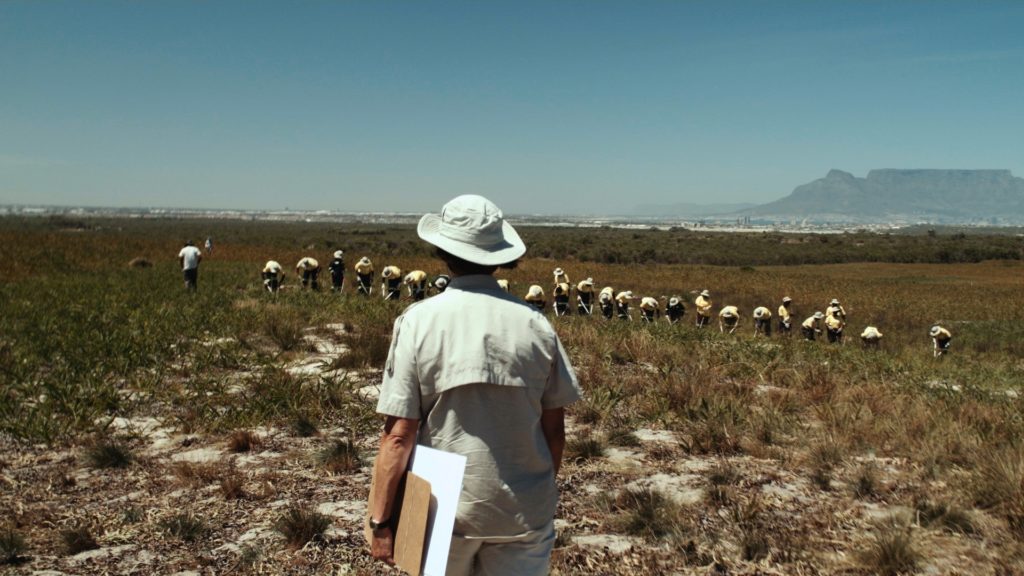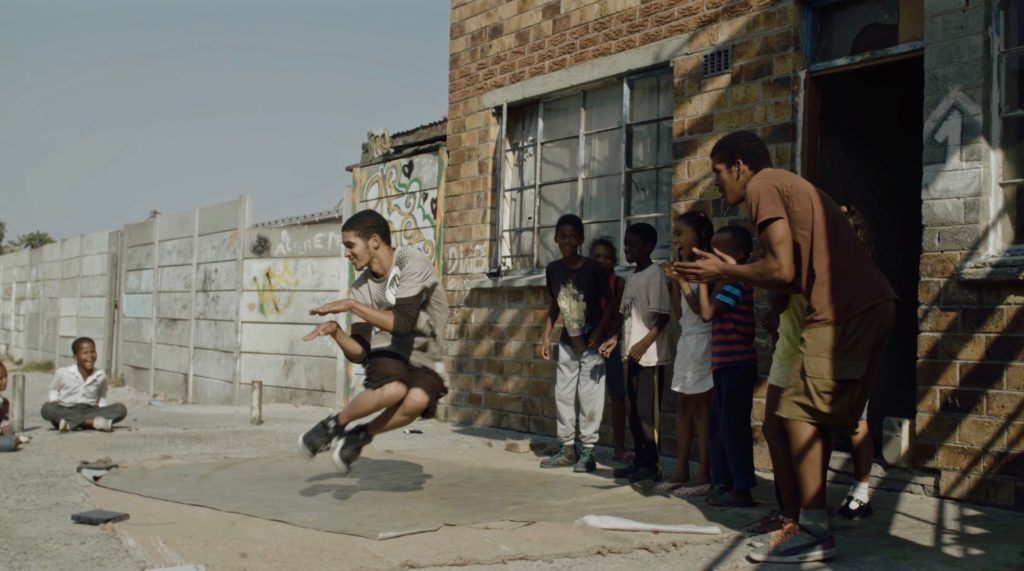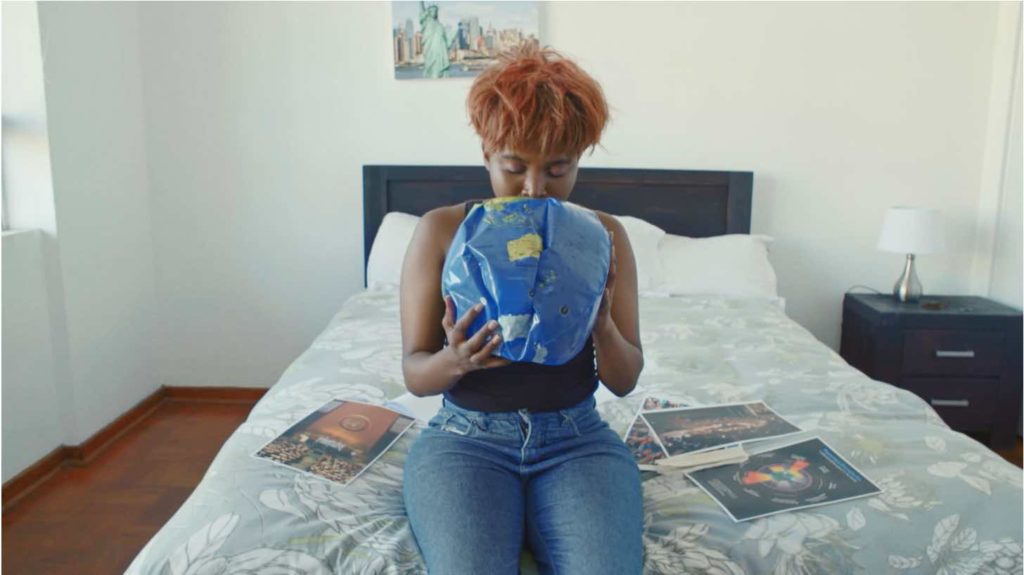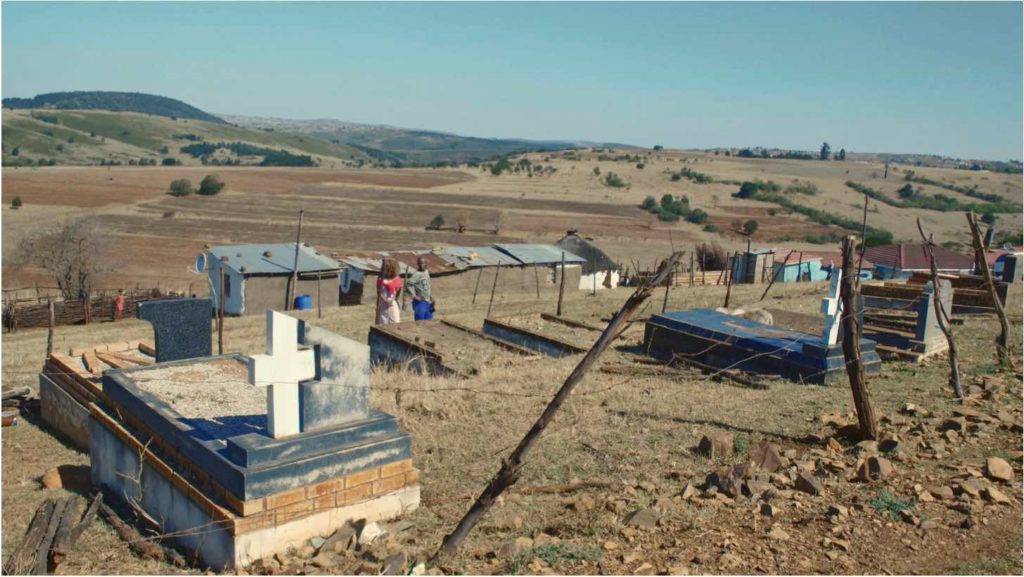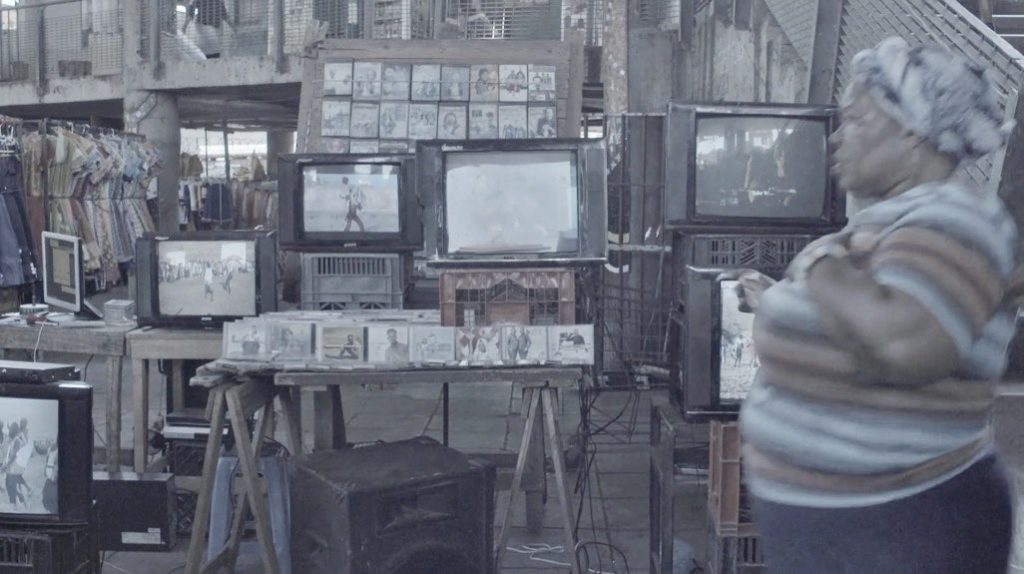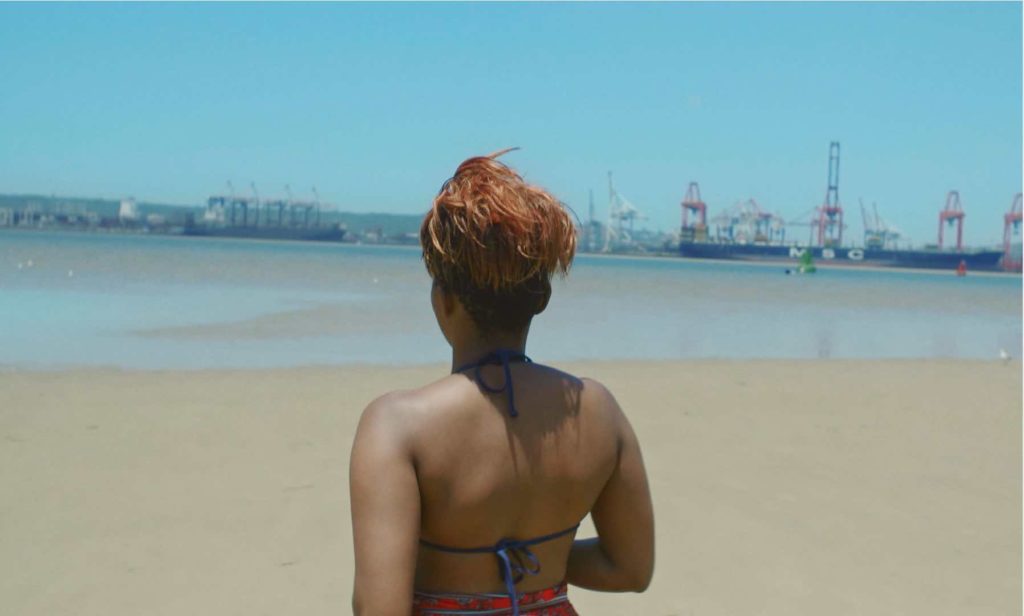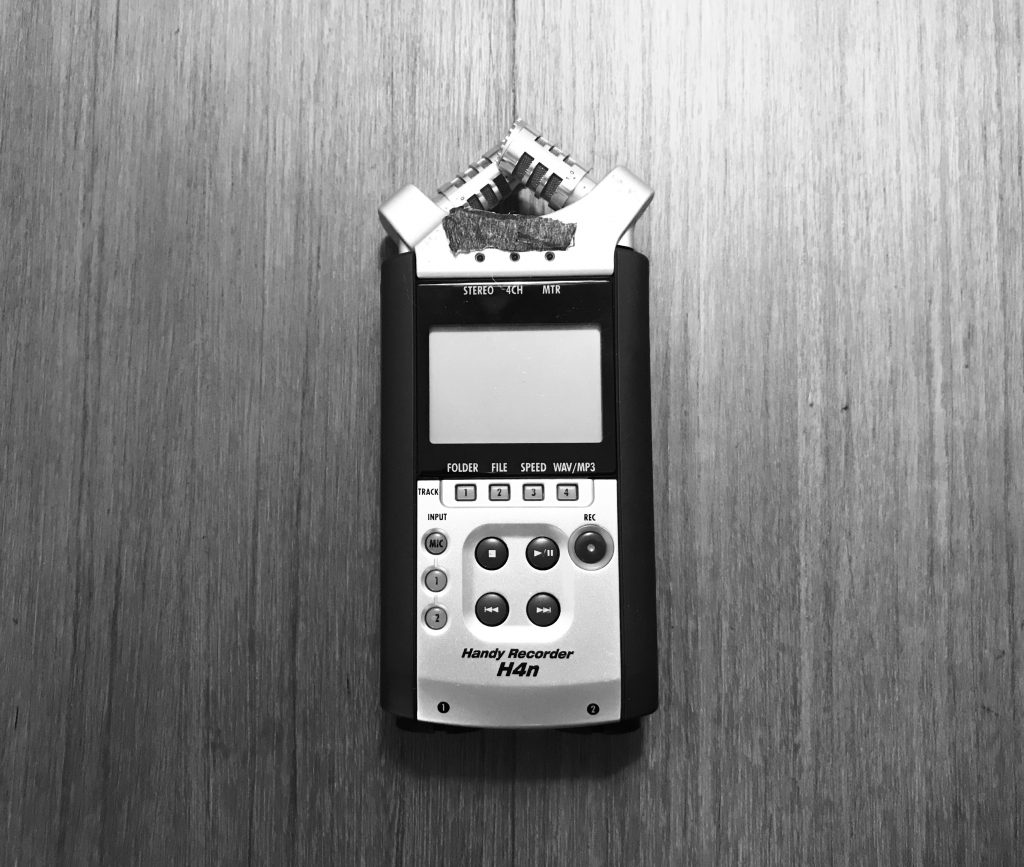Cinematic ethnography and a trilogy of films on postcolonial ecologies
Text written by Jacob von Heland and Henrik Ernstson, March 2020.
One Table Two Elephants (2018, 84 minutes) is the first in Jacob von Heland and Henrik Ernstson’s trilogy on the silences, violences and knowledges of postcolonial ecologies in South African cities. The directors’ take these apartheid-planned cities, not as a curious exception to the world, but as crucial entry points for how capitalism since its inception has been racialized and gendered, producing what Silvia Federicci called capital’s “constitutive outside,” the necessary spaces and bodies that capital requires to expand its exterior and interior frontiers.
The trilogy draws on an intellectual legacy with roots in the new French cinema, whose filmmakers and critics advanced and applied filmmaking to understand colonialism and coloniality in the increasingly global world, which von Heland and Ernstson links with contemporary discussion in postcolonial, decolonial and black radical thinking, including the likes of Achille Mbembe, Ann Laura Stoler, Dipesh Chakrabarty, Trinh T. Minh-ha, Harry Garuba, Premesh Lalu, and Sylvia Wynter.
First: One Table Two Elephants (Cape Town)
One Table Two Elephants (2018, 84 minutes) was filmed in Cape Town in 2014 and 2015 with a focus on knowing/silencing. Inspired by the “flat ontology” of Bruno Latour’s actor-network theory, the film follows biologists, hip-hoppers and a revivalist urban shaman, to explore how race and nature are intertwined in the postcolony as a general condition of the world.
Through shared ethnography, the film draws the viewer into a textured and rich relationship between people, things, technologies and places, and slowly but surely unravels a visual argument of deep-seated ontological and knowledge politics at the heart of the city.
The film was nominated to the Nordic Dox Award with World Premiere at CPH:DOX, Copenhagen International Documentary Film Festival in March 2018. It was also nominated to the prize Best Documentary Feature with its African Premiere at Cape Town International Film Festival (CTIF&MF).
Second: Lindeka’s Book (eThekwini-Durban)
With their second film, Lindeka’s Book: Provincializing Malfeasance, planned for release in 2020, they have since 2016 worked in eThekwini/Durban with a focus on property/theft and its afterlives. The film features a young black woman reading the French philosopher Michel Serres in the city of eThekwini/Durban, producing an experiment of audiovisual provincialization and decentering of European thought through sacrifice, shitting, and staged interviews.
Through blending the essay film tradition with their collaboration with two actors and the people they meet in eThekwini and its surrounds, von Heland and Ernstson invites and engages the viewers to seek for themselves an audiovisual argument which is both particular to this African city, while able to travel to disturb and decenter how we may think the world in many elsewheres.
The film ends with eating and shitting, an ultimate metabolic act of settling European thought as both indispensable and inadequate for revolution and freedom.
Third: The Mass (Johannesburg)
The third and last film, The Mass, is under planning with a focus on politics/ the political and will be filmed in Johannesburg from 2021. The film focuses on the imperative of action in the here and now, hic et nunc, of revolutionary practice through an interest in the embodied life of an African church choir.
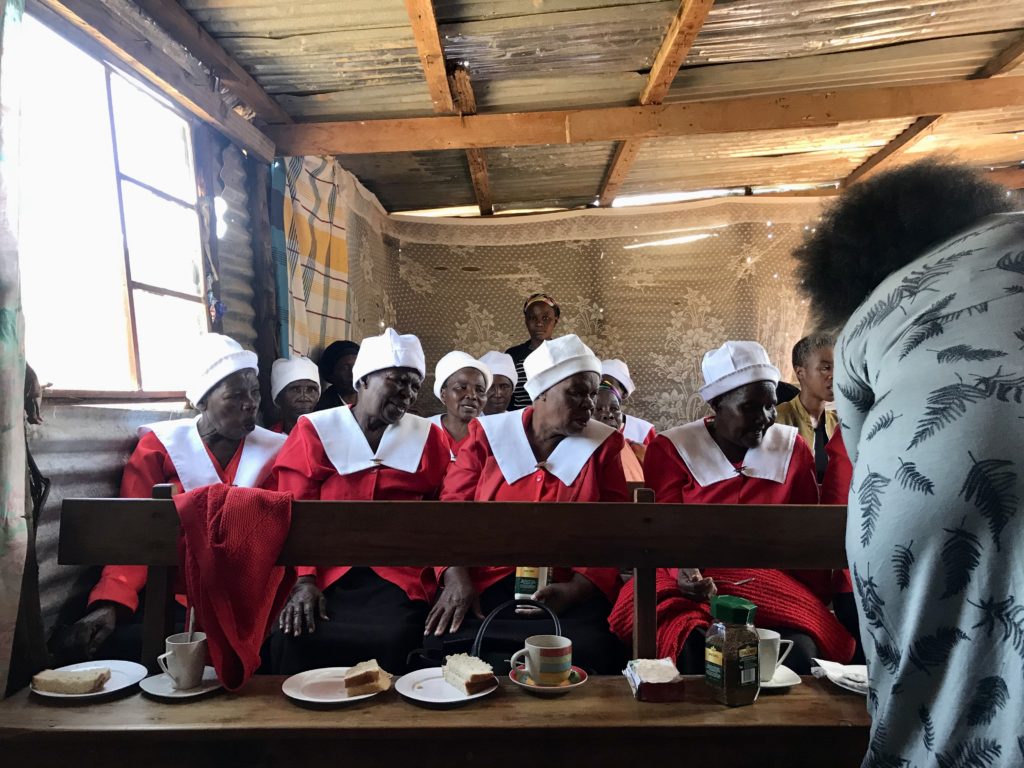
Cinematic ethnography: a widening practice for our postcolonial world
Moving from knowledge, to property, to politics, the film trilogy captures ongoing settler colonialism through combining different text- and film-based thinkers to shape the theoretical focus and the practice of making film. More generally the trilogy elaborates the role of cinematic ethnography under ongoing global capitalism and environmental crises, responding to Godard’s challenge to try to make emancipatory cinema against the grain of general uses of cinema in late modern society.
Other films in their production include the short film Killing Aliens Everyday: Otherness as Constitutive of an Organized Inside (17 min), which premiered at the conference Stories of the Anthropocene in Stockholm (27-29 Oct, 2016) and at The Third Biennial Conference of the Political Ecological Network (POLLEN), Brighton 24-26 June. They have also made Transdans (15 min), screened in 2015 at the Cape Flats Film Festival and the Stockholm International Dance Film Festival.
Their cinematic ethnography is a playful practice that expands and subverts lines between disciplines, text, and film. Their wider practice includes curated workshops and Masterclasses and publications in peer-reviewed articles and books.
